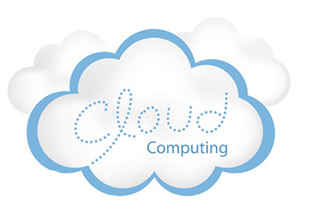Some say putting your business data in the cloud is no riskier than putting your money in a bank. At first sight, there are similarities, but a closer look reveals significant differences. You are not particularly concerned that your money will be lost if the bank is robbed or destroyed by fire because the bank and the government guarantee your money. It doesn’t matter if the very same cash you lodged in the bank yesterday is stolen today since one dollar bill is much the same as another. Your cloud data is not like money for two important reasons: First, most of the data is unique and irreplaceable – one piece of data is not the same as another; second, much of your data is confidential – customer records, financial information, new product development plans, etc. – and its value depends on it being kept strictly private.
So, despite all the hype about the savings it delivers, is cloud computing a dangerous false economy because it is simply too risky? The answer to that question depends on the answers to the nine questions below. Their purpose is to help potential cloud customers focus on the areas they should investigate before deciding for or against putting their company’s data in the cloud.

This is by far the most important point to consider. A business should choose only a cloud service provider that is a well-known, financially sound, and has proven track record.
2. Have you compared your current in-house data security with that of the cloud?
Check if the applications and data currently stored on servers in your premises are more or less secure there than if they were stored in the cloud and managed by the cloud company.
3. Have you worked out your current IT costs?
Calculate the total cost of the hardware, software, and personnel related to your local storage. Bear in mind that, of those costs, only the staff cost is tax-deductible in a single year; the equipment and software costs must be written off over several years. That can have significant cash flow implications.
4. Have you estimated the annual costs of using the cloud?
On the basis of you current and estimated medium-term IT requirements, calculate the exact cost of moving to the cloud.
5. Have you estimated the costs of expanding onsite facilities?
Ensure that you fully understand the cost implications of using additional cloud facilities in the future. This is a likely scenario with any growing business.
6. Do you understand the implications of changing your mind later on?
Assess the cost and disruption to your business of reversing your company’s decision to use the cloud, should it not work out after, say, a year.
7. Do you understand your legal obligations to the cloud company?
Related to the last point, clarify the situation regarding contract restrictions, such as minimum period, cancellation penalties, etc.
8. Do you understand the cloud company’s guarantees and obligations to you?
Apart from your company’s contractual obligations to the cloud company, ensure you fully understand their obligations to you. As in “7,” misunderstandings in this area can be expensive for a client.
9. Have you spoken to users of the cloud companies you are considering?
Talk to other clients of the same cloud service provider you are thinking of using to find out their experiences. There is no need to do this until you have narrowed your choice of cloud provider to
two or three.
Not all cloud companies offer the same service. Some suit individual clients’ requirements better than others. So, clients need to draw up a shortlist of providers to determine which ones best
matches their specific requirements.
Cloud service providers are acutely aware that a significant breach of security or loss of client data, could threaten the survival of their businesses. That is why they take extraordinary steps to minimize the possibility of such events ever happening and why they store multiple copies of all data in different locations, each with the highest level of security. It is also why major disasters involving loss, theft or inaccessibility of data are exceptionally rare. As a result cloud computing’s record of customer satisfaction is exemplary. Most clients are well aware that they could never achieve such security themselves without spending many multiples of what it costs them to use the cloud. It is hardly surprising that cloud usage is growing rapidly and that there is no sign of a slowdown in the foreseeable future.



